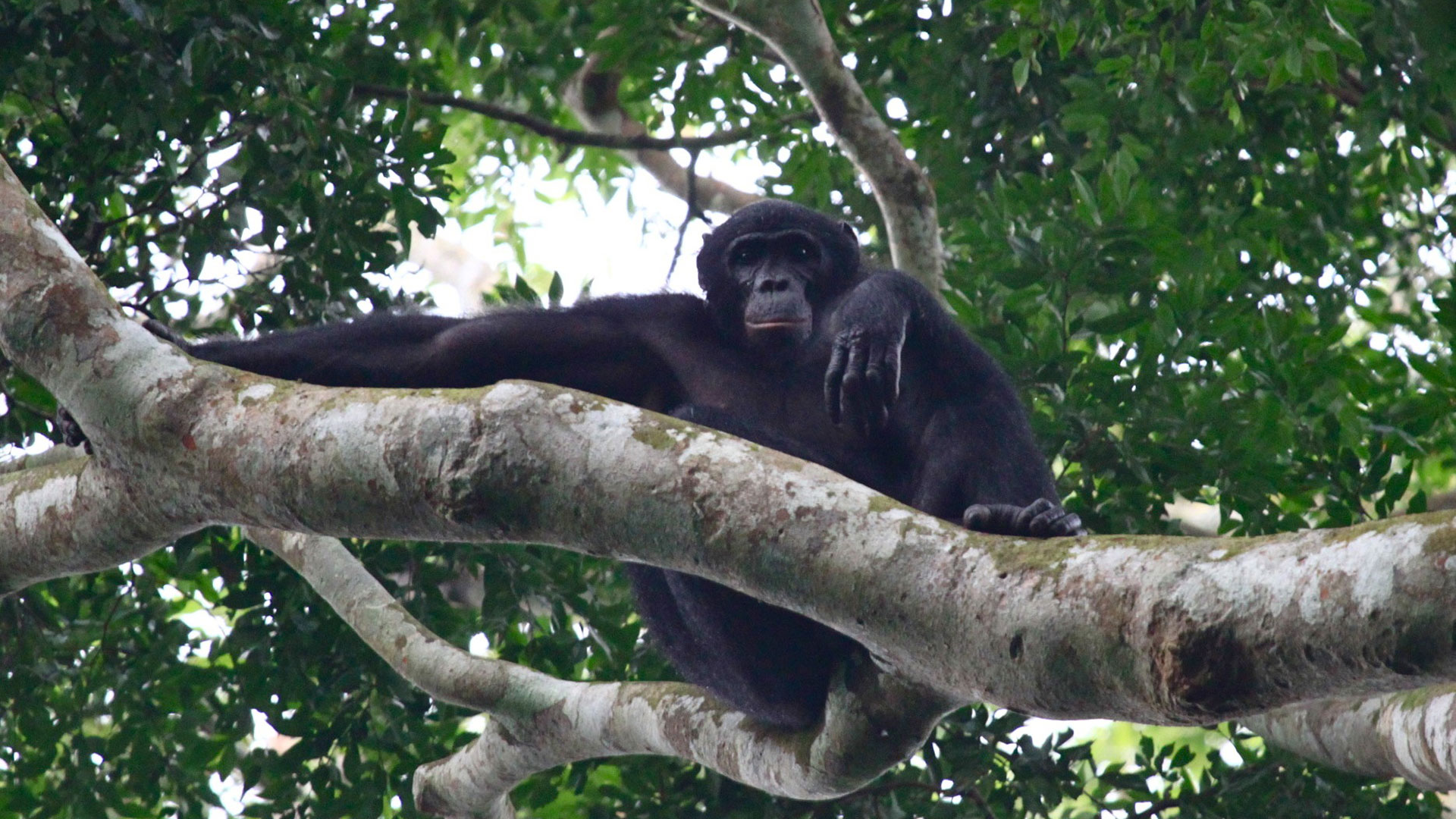
Applying to the Program
Each year, Emory's doctoral program in Anthropology receives applications from a large number of highly qualified national and international candidates. The program has an exemplary record of supporting foreign and minority students. Because of the high level of support and mentoring provided for each student, our program is highly competitive and selective in its admission process, with an average incoming class of 6 students.
The online application opens in early September and closes December 1.
- Unofficial transcripts
- 3 Letters of recommendation
- Statement of purpose
- Writing sample
- Identify 2-3 Anthropology faculty with whom you would like to work
- Application fee ($75)
The Recruitment Process and Evaluation of Candidates
The deadline for all applications is December 1. At this point, an admissions committee, composed of anthropology faculty from across the subdisciplines, reviews all applications and makes a list of applicants on which the entire faculty body will vote. This vote determines which applicants will be invited to online interviews with faculty. After faculty have conducted said interviews, faculty will vote again. This vote will determine admission offers. Invitations will be extended to those applicants to participate in a campus visit for them to gather information to make their decision.

Contacts for current Graduate Students and Faculty.
Frequently Asked Questions
- To learn about our faculty’s research interests, goals, and academic backgrounds, see our website for individual faculty pages and research labs.
- The Department’s areas of research specialization along with faculty working in those areas can be found here.
Faculty Research Specializations
Biological Anthropology
- Marcela Benitez - Primatology, Social Cognition, Adaptive decision making.
- Kristen Broehl* - Bioarchaeology, Forensic anthropology, Biological distance (biodistance) analysis.
- Craig Hadley - Global health, Demography, Nutritional adaptation, Africa.
- Melvin Konner - Behavioral biology, Evolution of nutrition, Evolution of childhood, San hunter-gatherers.
- John Lindo - Ancient DNA, Population Genetics, Domestication, Human adaptation, Artificial selection.
- Elizabeth Lonsdorf - Primatology, Great ape development, health & life history, social behavior.
- Dietrich Stout - Paleolithic archaeology, evolutionary neuroscience.
Cultural Anthropology
- Anna Grimshaw* - Visual anthropology, Documentary cinema, Experimental ethnography.
- Bayo Holsey - Politics of memory, Race, Transnationalism, Public culture, neoliberalism, Africa.
- Bruce Knauft - Critical theory, Power and Representation, Tibetan Buddhism, Melanesia, Asia, Africa.
- Peter Little - Economy and culture, Agrarian change, Development anthropology, Sub-Saharan Africa.
- David Nugent - Sociocultural anthropology, Symbolism/power, Political economy, Latin America.
- Chikako Ozawa-de Silva - Medical, Psychological and Sociocultural Anthropology, Body-mind, Selfhood, Japan, Tibet.
- Robert Paul* - Psychological anthropology, Symbolic Anthropology, Religion, Dual inheritance, Nepal, Tibet.
- Michael Peletz - Sociocultural theory, Law, Social Justice, Gender/Sexuality, Islam and the Muslim world, Southeast Asia.
- Kristin Phillips - Political and development anthropology, Food and hunger, Energy, Sub-Saharan Africa.
- Debra Vidali - Experimental ethnography, Theater, Decolonial theory/practice, Activism, Indigenous sovereignty, North America.
*Not serving in advisor/committee chair capacity. Possibly available for committee.
- Definitely! And current students too! Contact information is available on each individual profile page.
- Our faculty and students are excited to hear from and about aspiring scholars. Be sure to include what you are doing now and what you want to be doing in the future!
- The department’s ability to support an applicant’s research agenda with departmental and university expertise and resources
- Academic preparation and performance (GPA, transcript)
- Compelling and well-written statement of purpose
- Strength and innovation of proposed project
- Letters of recommendation
- Contributions to diversity
Our program has no terminal MA, but you will receive an interim MA as part of the program of study for the PhD.
- No and no.
- We admit students from a wide variety of disciplines and academic levels.
- All students, regardless of prior degree, complete the same program of study.
- All prospective students must apply in regular admissions cycles.
- Credit hours do not transfer. Students may petition for previous coursework to count toward program requirements. If the syllabus from a previous course matches the learning goals of a course within our curriculum, the student may exempt that course but will be required to fulfill credits with a different course.
- Dual and Joint degrees are offered from the Laney Graduate School in select programs.
- The anthropology graduate program works with the School of Medicine to provide a MD/PhD track and the Rollins School of Public Health to provide a PhD/MPH track.
- Note that recruitment cycles for Anthropology and Emory School of Medicine are on different timetables. Students must apply to both schools and be admitted to each individually. Contact the Graduate Program Coordinator for more information, if you plan to pursue the MD/PhD program.
Please check the application fee waivers page to see whether you are eligible for a fee waiver.
- Online application form
- Statement of purpose (see below for more information)
- Three letters of recommendation
- Writing sample
- Unofficial transcripts for all colleges attended (Official transcripts are required only upon admission to the program.)
- The program does not require or accept GRE or TOEFL scores.
- The online application is accessible on the Laney Graduate School website.
- The statement of purpose is central to the application. The statement should be limited to two or three single-spaced pages. You should clearly articulate your intended research interests. If your research plans are not yet entirely specific, you should clarify the range of issues in anthropology that you are most interested in pursuing and discuss plausible contexts for studying them. It is best to avoid extended statements about personal history, except as relevant to your research plan. Overall, your statement should reflect intellectual sophistication, good writing, and and a sense of important research direction within an area of archaeology, biological anthropology or sociocultural anthropology.
- Any of the following strengthen the personal statement:
- Discuss the intellectual and practical importance of your area of interest.
- Include the names of specific faculty with whom you may want to work.
- Indicate an awareness of the current literature in your field of interest (use citations selectively).
- If appropriate, mention a specific world area or ethnographic sphere relevant to your research interests.
- Provide details of your relevant prior experiences, courses, research training, or publications.
- Consider the compatibility of your interests with the Emory Anthropology program/faculty research area(s). It’s a great idea to address the question, “Why Emory?” to expand on your vision of how you would benefit from studying at Emory.
- Choose a short sample (no more than 6,000 words) that showcases your writing skills.
- The writing sample serves an evidential function – to give the audience evidence of your qualifications for this program. The sample could be a course paper, senior thesis, or report that has been submitted for a previous project.
- The sample should demonstrate your ability to connect theories and ideas; to think critically and articulate ideas in writing.
- The Department of Anthropology fully funds all admitted students. Cohorts are small (typically 5-6 students/year) to maximize financial support and faculty responsiveness to the needs of each student. No additional forms are needed to apply for this support.
- Funding includes tuition and an annual stipend of at least $31,000. Funding is for 5 years, pending satisfactory progress.
- More funding opportunities are available through the Graduate School. For more details, please visit their website at http://www.graduateschool.emory.edu/funding/index.html.
- The Anthropology Graduate program funds all of its graduate students for 5 years, given satisfactory progress. This includes tuition costs and a 12-month living stipendof at least $34,000/year.
- Students may obtain an additional year of aid by competing with other students across the Graduate School for several competitive Emory fellowships. We also strongly encourage our students to seek out and apply for external funding opportunities.
- Students are responsible for the activity, athletic, computer and mental health fees for each semester in which they are enrolled. Since students receive a 12-month living stipend, they must be enrolled in the program for the fall, spring and summer semesters. Students are typically enrolled for research credits during the summer.
- Every student’s route to completion is different. Some projects take longer than others.
- Students in our program average completion in 6 ½ years.
- Students are typically assigned an initial advisor based on the faculty listed in their application, unless those faculty are unavailable or the program determines that there is a better fit with another faculty member.
- Students are encouraged to take courses and interact with a wide range of faculty in order to create a network of support and identify potential members for a dissertation committee, including the chair who will serve as primary advisor.
- Absolutely! Students are encouraged to explore resources from the entire university.
- Emory has trained anthropologists as faculty in many departments.
- Dissertation committees may include faculty from other Emory departments and schools, as long as they are on the graduate faculty list.
- Teaching Assistant Training and Teaching Opportunity program, or TATTO, which ensures that each student’s education as a scholar is balanced with thoughtful and thorough preparation in the art of teaching.
- In the Anthropology PhD program, students are required to complete three teaching assistant assignments as part of the requirements for PhD candidacy. Our fourth TATTO requirement provides an opportunity for students to co-teach or teach a course, after reaching candidacy.
- An Institutional Review Board is a panel of research professionals that reviews proposed research methods to ensure ethical integrity.
- http://www.irb.emory.edu/
- The program provides IRB training as part of the Laney Graduate School Jones Program in Ethics.
- Dissertation research projects must be submitted for review.
- The Laney Graduate School boasts a robust Professional development program.
- Financial assistance helps students to attend conferences as well as training and research opportunities.
- One-on-one career mentoring
- Grant writing coaching
- Networking opportunities
- https://www.gs.emory.edu/professional-development/index.html
- The program has an expansive network of alumni in different careers and spheres of interest.
- Graduate School policy restricts employment of graduate students who are receiving stipends. Permission to work additional jobs, even within Emory, is required from the program and Laney Graduate School. LGS Handbook 3 (D).
- In addition to the above permissions, international students should check with International Students and Scholars Services (ISSS) before applying and accepting employment.
